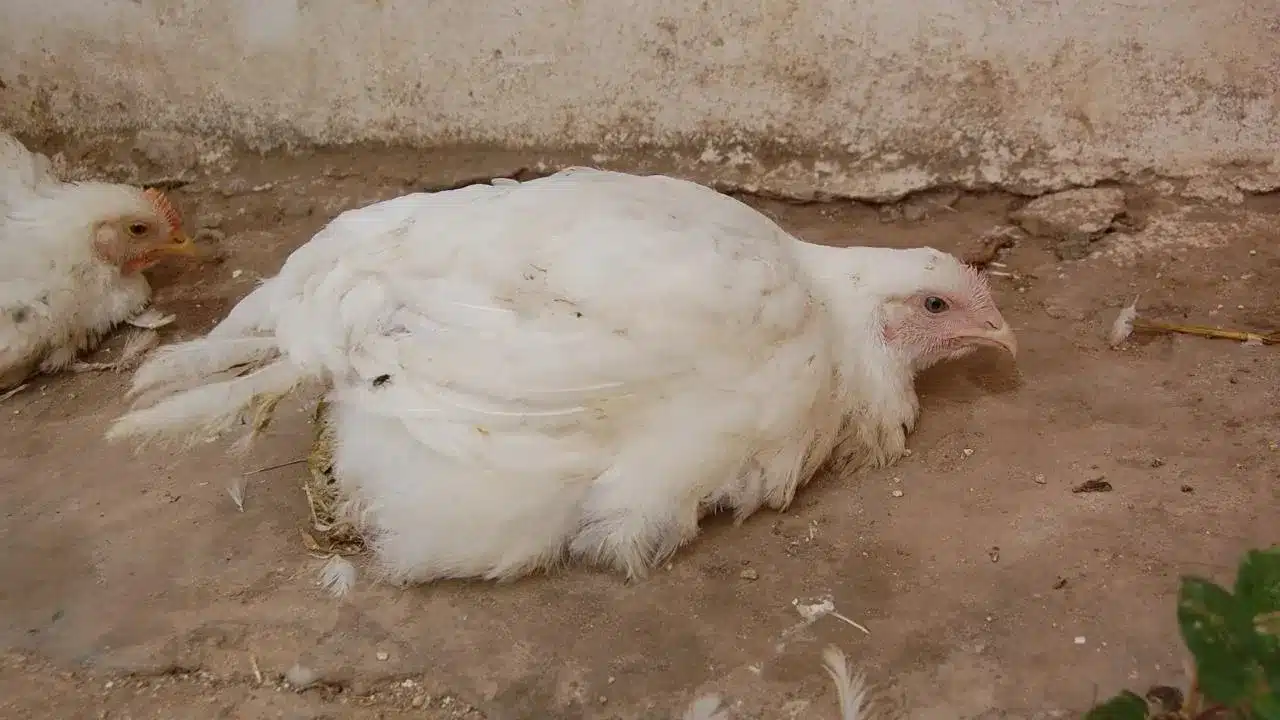About Newcastle Disease (ND):
- It is a highly contagious and often severe disease found worldwide that affects birds, including domestic poultry.
- It is caused by a virus in the family of paramyxoviruses.
- It attacks their respiratory, nervous, and digestive systems.
- ND only affects birds, particularly poultry, such as chickens.
- It can cause illness and death in large numbers of birds quickly.
- Transmission:
- ND is transmitted most often by direct contact with diseased or carrier birds.
- Infected birds may shed the virus in their feces, contaminating the environment.
- Transmission can then occur by direct contact with feces and respiratory discharges or by contaminated food, water, equipment, and human clothing.
- ND viruses can survive for several weeks in the environment, especially in cool weather.
- The disease is very contagious. When the virus is introduced into a susceptible flock, virtually all the birds will be infected within two to six days.
- Symptoms: Infected birds may show signs of:
- loss of appetite, coughing, gasping, nasal discharge, watery eyes, bright green diarrhoea, and nervous signs such as paralysis and convulsions
- combs and wattles may look swollen, enlarged, and discoloured (purple or blue)
- reduced egg production, and the few eggs that are produced may be soft shelled and malformed.
- Treatment:
- There is no treatment for ND, and, in many countries, infected and susceptible birds in the vicinity of an outbreak are culled to contain transmission of the disease.
- Prevention is accomplished through vaccination and strict biosecurity.
Q1: What is a Virus?
A virus is an infectious microbe consisting of a segment of nucleic acid (either DNA or RNA) surrounded by a protein coat. A virus cannot replicate alone; instead, it must infect cells and use components of the host cell to make copies of itself. Often, a virus ends up killing the host cell in the process, causing damage to the host organism. Well-known examples of viruses causing human disease include AIDS, COVID-19, measles and smallpox.
Source: Brazil declares animal health emergency after Newcastle disease case
Last updated on February, 2026
→ UPSC Notification 2026 is now out on the official website at upsconline.nic.in.
→ UPSC IFoS Notification 2026 is now out on the official website at upsconline.nic.in.
→ UPSC Calendar 2026 has been released.
→ Check out the latest UPSC Syllabus 2026 here.
→ Join Vajiram & Ravi’s Interview Guidance Programme for expert help to crack your final UPSC stage.
→ UPSC Mains Result 2025 is now out.
→ UPSC Prelims 2026 will be conducted on 24th May, 2026 & UPSC Mains 2026 will be conducted on 21st August 2026.
→ The UPSC Selection Process is of 3 stages-Prelims, Mains and Interview.
→ Prepare effectively with Vajiram & Ravi’s UPSC Prelims Test Series 2026 featuring full-length mock tests, detailed solutions, and performance analysis.
→ Enroll in Vajiram & Ravi’s UPSC Mains Test Series 2026 for structured answer writing practice, expert evaluation, and exam-oriented feedback.
→ Join Vajiram & Ravi’s Best UPSC Mentorship Program for personalized guidance, strategy planning, and one-to-one support from experienced mentors.
→ UPSC Result 2024 is released with latest UPSC Marksheet 2024. Check Now!
→ UPSC Toppers List 2024 is released now. Shakti Dubey is UPSC AIR 1 2024 Topper.
→ Also check Best UPSC Coaching in India






















